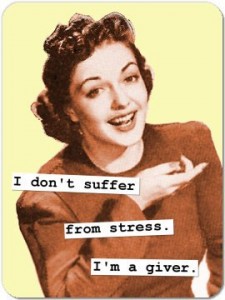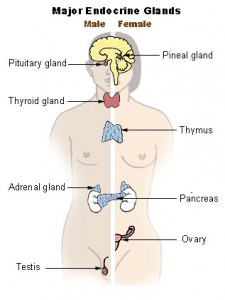Massage and bodywork need not be painful; no pain, no gain does not apply. In fact, in order to get the most benefit from your massage and bodywork, your level of perceived sensation or discomfort should not exceed a level 7 out of 10. A level 6, and at times 7, is ideal and typically feels like a good, therapeutic depth of pressure where there may be slight discomfort, but you are able to breathe and remain totally relaxed through your whole body. It is imperative that you let your massage therapist know if the pressure and sensation or discomfort is exceeding a level 6, and upper limit 7, out of 10.
Why is it important to avoid discomfort above a level 7 during massage and bodywork? In order for our tissues to relax and heal, our nervous system (mindbody) must sense that it is safe and not experience a perceived threat. Ideally, we want to be in a regulated state in our parasympathetic nervous system. This is our rest and repair state where our body can optimize health and wellbeing.
As a bodyworker, I know how to access the parasympathetic nervous system in order to establish safety in the body through touch (myofacial stimulation). I also understand the limitations and boundaries of the body. By resourcing sensory input that targets the facia – via slow, deep, and broad pressure – I am able to reassure the client’s physical safety, which facilitates a return to homeostasis. Homeostasis is where the body will heal and function optimally. However, my ability to do this relies entirely on our communication. You must let me know if the depth of pressure in our work is approaching a 7 out of 10 or is exceeding a level 7 – remember, a level 6 is ideal. Only you know what you are sensing and experiencing.
Every body is different and there are many factors that contribute to the nervous system’s decision to elicit a pain signal. Even for the same person, a different state in the nervous system on a different day will result in a different tolerance for pressure and level of sensation or discomfort experienced. So, communication is absolutely necessary to deliver and receive the ideal and most beneficial massage and bodywork.
Be assertive and politely demand the pressure you want (ideally, a level 6 or less).
Level 1: like a feather
Level 2-3: light touch
Level 4: tissue warm up
Level 5: moderate to firm pressure
Level 6-7: the sweet spot – moderate to deep pressure where there may be slight discomfort, but you can breathe through it and remain totally relaxed through your entire body – pain should be very minimal
Level 8: deep pressure that is becoming too much where you sense your body wanting to resist or tighten and you may begin to hold your breath – this is too much pressure for our purposes
Level 9-10: too much pressure – painful pressure where your body reacts with resistance/tension/holding in your muscles and your breath, and you may start to sweat
It is normal to feel sore after a massage. After working on tissues that you may not regularly use or that you have recently used in a novel way you might experience delayed onset muscle soreness. This is a physiological response to inflammation as your tissues recover.
Soreness may be experienced if your tissues are not accustomed to massage. In the same way that your body adapts to the strain and load of working out, your tissues need time to adapt to being manipulated in the ways that massage and bodywork impact them. You may experience inflammation and soreness in areas that need healing. If you have neck pain after a massage, for example, it can be a sign that you carry a lot of tension in that area.
If you have not received massage or bodywork recently or if it is your first time receiving massage and bodywork, it is more likely that you will feel soreness afterward. Your body will adapt to the work if you receive frequent and regular massage and bodywork.
 Summer has come to an end and winter is just around the bend. Winter is when I see the most injuries and muscle related complaints. During the winter it is cold outside and potentially icy; we are cold, tense, and our circulation is not great lending to muscle tension and a greater risk of injury. Additionally, winter can be stressful; it involves Holidays, bad weather, multiple family gatherings, travel, and extra expenses.
Summer has come to an end and winter is just around the bend. Winter is when I see the most injuries and muscle related complaints. During the winter it is cold outside and potentially icy; we are cold, tense, and our circulation is not great lending to muscle tension and a greater risk of injury. Additionally, winter can be stressful; it involves Holidays, bad weather, multiple family gatherings, travel, and extra expenses.

 The endo…what? I’ll give you a hint, it’s not what you do when you go over your handlebars. In simplest terms, it is a system of glands, each of which secretes a type of hormone directly into the bloodstream to regulate the body. The endocrine system is in contrast to the exocrine system, which secretes its chemicals using ducts. The endocrine system influences almost every cell, organ, and function in our bodies. It is instrumental in regulating mood, tissue function, metabolism, and reproductive processes to name a few.
The endo…what? I’ll give you a hint, it’s not what you do when you go over your handlebars. In simplest terms, it is a system of glands, each of which secretes a type of hormone directly into the bloodstream to regulate the body. The endocrine system is in contrast to the exocrine system, which secretes its chemicals using ducts. The endocrine system influences almost every cell, organ, and function in our bodies. It is instrumental in regulating mood, tissue function, metabolism, and reproductive processes to name a few.![Reblog this post [with Zemanta]](http://img.zemanta.com/reblog_e.png?x-id=edd46bea-c96d-4e6f-ae0f-5f8b7ea9e215)